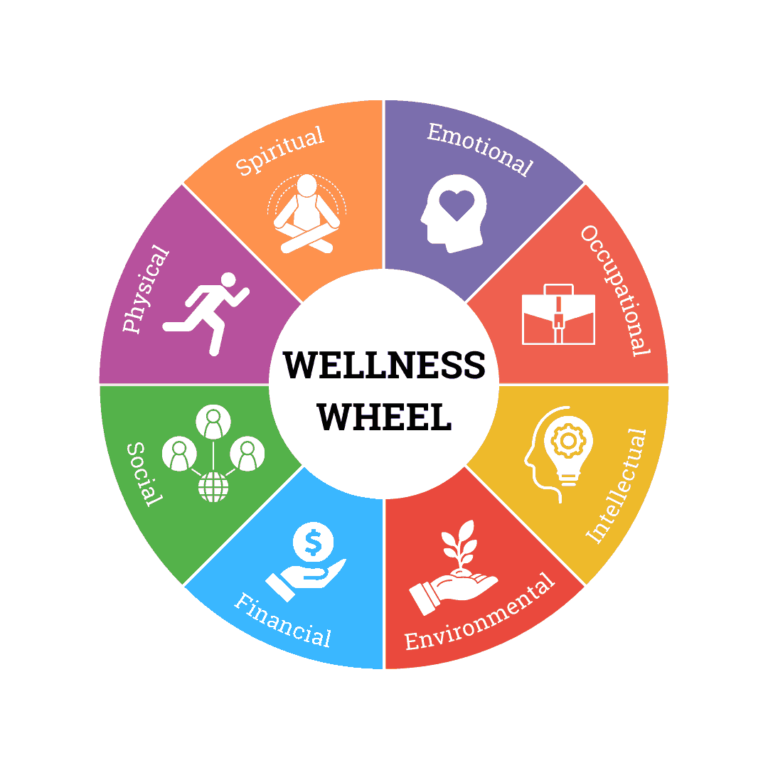Your Dashboard Tools
Sample Completed Health Record
Here you can add some health background details which can be useful in setting the scene. GO!
Values are what make you who you are – see how you understand what values are compared to beliefs and then enter your values. GO!
You can take a health questionnaire to see how healthy you are. GO!
See how your attitude to change can affect whether you make changes to your health. GO!
You locus of control determines whether you are a victim of circumstance or whether you are in control. GO!
We split your overall health into a number of different ‘domains’. You can see what these domains are and find out which you are stronger in by taking an overall health questionnaire – GO!
Having established how healthy you are across all the health domains, you can now prioritise which domains you might want to address – GO!
Within each domain there are a number of specific health areas. You can look at the health areas in each domain and also see more information on each health area – GO!
Having looked at the different health areas, you can list the ones you want to tackle – GO!

Hi - you haven't chosen a display name - but
it's 04 Jan, 2025 4:00 am
Set your health record personal password
As an additional layer of protection, you have set an additional personal password which will restrict any personal information that is shown on this page – which only you can see in any event.
You are not allowed to see this content.
Your Health
The following sections summarise your overall health. You can complete as many as you like, and in any order, but in may ways it makes more sense to progress down the page. Only enter what you feel comfortable putting in. No-one else will be able to see your info.
Once you have entered your personal password on this screen, you will have to hit ‘Refresh’ (F5 on many Windows machines) to have access to personal info.
Your Background
You can enter more details about yourself, only to make your profile more complete. You can even add a profile picture! We won’t look at it, use it or do anything with it at all!
This just starts you thinking about your health – feel free to add details at any time.

Your Health Background Info
Your main focus: Financial health
Your secondary focus: Life journey
You haven’t entered another focus
You haven’t entered a phone number
General health info: Not bad really
You last edited these on 16/11/23
Your Values
Your values form your attitudes on life and determine how you think, the decisions you make and what you do. It’s important to understand what they are – we help you to do that and give you choices in how to do it.
What’s the difference between values, attitudes and beliefs? See more by clicking the button below.

Your Values
You entered your values on 16/11/23
Value 1: Integrity
Value 2: Honesty
Value 3: Humour
Value 4: Modesty
Value 5: Accountability
You haven’t entered a sixth value
Your Overall Health
This is where you look at your current state of health overall. This might involve taking a health questionnaire, and as explained there are three to consider. The first two you can download or do on our site – the third you have to do on their site.
You only want a quick overview of your health and wellness, and will drill down in any areas needing work – use the Subjective Happiness Scale
You want to do a more detailed assessment and then focus on areas you’re already aware of – use the Oxford Happiness Scale
You want to look at your health across a number of different domains – use the Personal Wellness Questionnaire.
Overall health questionnaire results
You last edited these on 16/11/23
You reviewed how healthy you were by taking a questionnaire
The results and summary are shown below.
You took the Oxford questionnaire and said you’d: Complete it online you scored 118
The summary from this was that you were: Somewhat happy or moderately happy. Satisfied. This is what the average person scores.
Overall health summary: Somewhat happy or moderately happy. Satisfied. This is what the average person scores. I’d probably agree with this.
Your attitude to change
This is where you look at your attitude to change. This is important – if you want to actually do something to improve your health, you have to make changes! You may know this already, but if not you can take a questionnaire to find out or confirm your view of what your attitude to change is.

Your attitude to change
You last edited your attitude to change on 16/11/23
You said you’d: download the attitude to change test and your score was 7
Your attitude to change summary was positive overall.
You didn’t enter any barriers to change.
Your locus of control
This is where you look at your locus of control. This is important and determines a lot about you. It’s whether you’re a passenger in life or someone who takes control. You can take a questionnaire to find out what your locus of control is.

Your locus of control
You last edited your locus of control on 16/11/23
You said: I would rather take a test to establish my locus of control
You then said: I’ll do the test online
and your score was 6
Your locus of control summary: This is interesting
Your Health Domains
Health is a big subject – we’ve used physical, financial and mental health to split it up. It can be broken down into more ‘domains’ which reflect different sorts of health.

Your analysis of your health domains
Your strong domains were: Emotional, Financial
Your domains to improve were: Physical, Social
Your Questionnaire result scores were:
Emotional 9 Environmental 4 Financial 8 Intellectual 5
Occupational 7 Physical 3 Social 2 Spiritual 5
You can see in the chart below how you scored in each domain.
Prioritise your health domains
This is where you have to think about which domains you want to focus on. It isn’t always the domains where you feel you are weakest or the lowest score from the questionnaire!
There’s also the question of how important a domain is to you.
So we ask you to look at the domains you should address (the weaker ones) AND the domains you want to address.
We do this by putting domains into quadrants – click the button below to prioritise your domains.
You placed your health domains into four quadrants
There are domains you may not be strong in, and which you need to address, but there may also be domains that you WANT to address, and they may not be the same!
Quadrant 1 – You WANT and NEED to address:
Social, Physical
Quadrant 2 – You NEED to address but don’t WANT to:
Spiritual, Environmental
Quadrant 3 – You WANT to address but don’t NEED to:
Financial, Emotional
Quadrant 4 – You don’t WANT or NEED to address:
Intellectual, Occupational
You looked at health areas we have within each domain
See health areas in domains
You looked at the health areas within each domain, and your initial thoughts were:
Domain
Health Area
Emotional
Anxiety
Environmental
Greenness
Financial
Financial Planning
Intellectual
IQ
Occupational
Work / Life balance
Physical
Alcohol
Social
Communication skills
Spiritual
Spirituality
We have a page with information on each health area. If you select a domain and health area you’ll be able to go and look.
Domain for health area: Social
Health area to look at: Communication skills
Click to go to the page containing information on Communication skills
Your Action Plans
Action plans are where you choose a specific issue and start to tackle it. It will be focussed on one specific health area, and you will log the issue you want to address and the ideal outcome you want. You will be able to look at some exercises you can undertake related to this issue, and decide whether you want to include these in your action plan.
In future you will be able to enlist the help of experts in the specific area you have selected – browse the experts with the relevant skills and contact the one you want to use.
Finally you will be able to log how often you tackle a particular activity and how useful you found it.
This is where you will be able to see a summary of any action plans you have created, and you will be able to go to them from there. You will also be able to add a new action plan.









